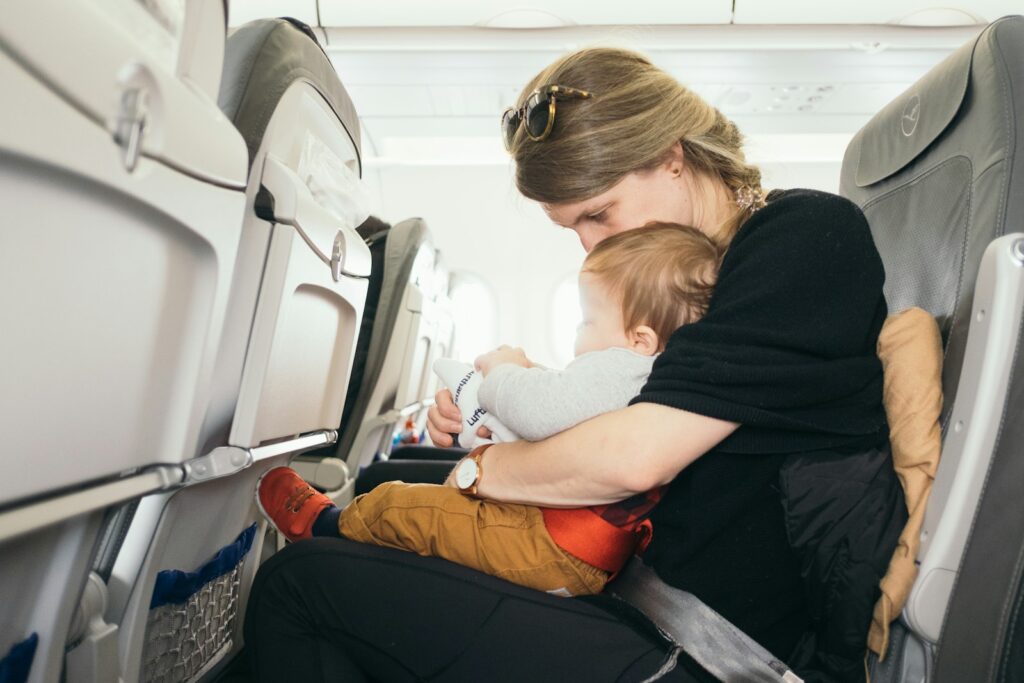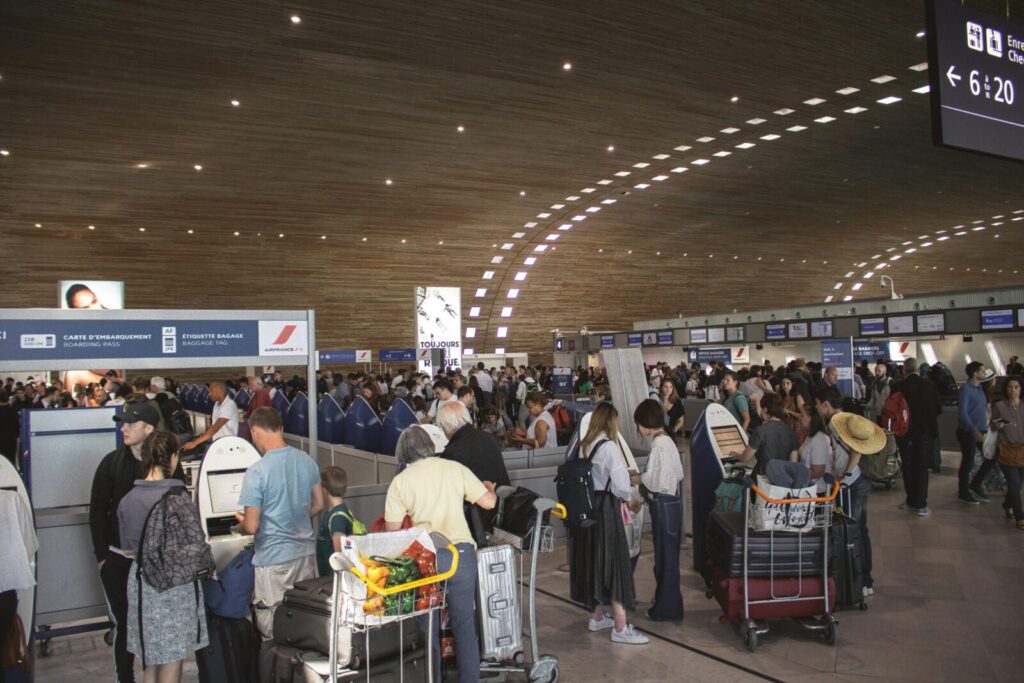Family vacations are meant to be exciting, relaxing, and filled with unforgettable memories, but planning them often comes with misconceptions that make trips more stressful and expensive than necessary. Many people assume that traveling with children is complicated or costly when, in reality, thoughtful planning and informed choices can save both time and money. Believing common myths about family travel can prevent you from enjoying the journey or even limit opportunities to explore new destinations. The key is to separate fact from fiction. By understanding what really works for families, you can plan smarter and travel happier. Here are fifteen common family travel myths and the truths behind them.
1. Booking Early Always Guarantees the Best Deal

Many families think that booking flights and accommodations months in advance guarantees the lowest price. While early booking provides security, it does not always mean the best deal. Airline and hotel prices fluctuate based on demand season and special promotions. Waiting and monitoring fares can sometimes save more money than booking immediately. Flexible dates and using price alerts allow families to take advantage of sales and discounted rates.Planning early is helpful for scheduling, but it is not a guarantee of cost savings. Families should focus on finding a balance between preparation and smart timing for purchases
2. Traveling with Kids Is Too Expensive

There is a common belief that family vacations are prohibitively expensive, but traveling with children can be affordable with careful planning. Many destinations offer discounted child rates, family passes, or free admission for kids. Staying in vacation rentals or choosing all-inclusive resorts can reduce expenses on food and amenities. Budgeting ahead and prioritizing activities that everyone enjoys helps avoid overspending. Families often overlook simple strategies like cooking meals or exploring public attractions, which can make trips more economical. By planning wisely, families can enjoy meaningful experiences without feeling financial strain. Travel with children is an investment in memories, not just an expense.
3. Road Trips Are Cheaper Than Flying

Many assume that driving to a destination is always cheaper than flying, but this is not always true. Road trips involve costs for gas, tolls, meals, and overnight stays that can quickly add up. Airlines often offer affordable fares, especially when booked during promotions or for groups. Families should compare all costs, including travel time and comfort. While driving allows flexibility, it can be more tiring, especially for young children. Considering both options and calculating total expenses ensures families choose the most economical and convenient option. Road trips are fun, but not automatically the cheapest choice
4. Kids Won’t Remember the Trip, So It’s Not Worth It

Some parents believe that traveling with young children is a wasted effort because they may not recall the details. Memories are only part of the value. Travel experiences help children develop curiosity, adaptability, and social skills. Exposure to different cultural environments and activities shapes their growth and imagination. The joy and bonding that occur during family trips are meaningful even if specific memories fade. Children learn lessons about the world and themselves that last a lifetime. Sharing adventures creates stories and traditions that can be cherished for years. Family travel offers more than recollection; it builds character, connection, and confidence.
5. Family Travel Is Only for Summer Vacation

Summer is the most popular time for family trips, but it is not the only option. Traveling during shoulder seasons like spring or fall can provide better deals, fewer crowds, and more comfortable weather. These periods often allow families to enjoy destinations without high prices or long lines. Accommodations and attractions frequently offer discounts outside peak times. Off-season travel can create unique experiences and opportunities to see local events or wildlife. Families benefit from relaxed schedules and a more peaceful atmosphere. Exploring destinations outside summer can be enjoyable, affordable, and often more memorable than peak season travel.
6. International Trips Are Too Complicated for Families

International travel may seem overwhelming, but it is achievable with careful preparation. Many destinations are family-friendly and offer activities suitable for all ages. Planning visas, passports, vaccinations, and accommodations in advance simplifies the process. Traveling abroad exposes children to different languages, customs, and cultures, which broadens their perspective. Learning about new environments can be exciting for the whole family. With proper research, families can choose destinations that match their comfort level and interests. Travel insurance and thorough planning make international trips manageable. International vacations are not reserved for experienced travelers; they can be a rewarding experience for families willing to prepare.
7. You Need a Full Itinerary to Keep Kids Happy

Overplanning can lead to stress for both children and parents. Having a packed schedule does not guarantee satisfaction. Kids often enjoy unstructured time, such as playing at a park, swimming, or exploring their surroundings. Allowing flexibility enables families to adapt to moods, weather, or unexpected opportunities. Downtime is essential for everyone to recharge, including parents. Scheduling only the most important activities while leaving room for spontaneous fun creates balance. A flexible itinerary encourages discovery and relaxation. Children appreciate the freedom to explore, while parents benefit from reduced stress. Families should focus on quality experiences rather than trying to fill every minute with activities.
8. Resorts Are Always the Best Option for Families

Resorts offer convenience, but they are not the only suitable choice for families. Vacation rentals, boutique hotels, and even camping provide unique experiences and often more space at a lower cost. Some families prefer kitchens and separate bedrooms that rentals offer, while others enjoy cultural immersion or outdoor adventure. Instead of assuming resorts are superior, families should evaluate their needs, preferences, and budget. Consider the location, amenities, and opportunities for exploration. The best accommodation depends on each family’s style and travel goals. Flexibility in lodging choices often enhances the overall experience and can create more memorable and personalized trips.
9. Travel Insurance Is a Waste of Money

Many travelers think travel insurance is unnecessary, but it protects against unexpected events, from flight cancellations to medical emergencies. Insurance gives families peace of mind, knowing that unforeseen circumstances will not ruin their trip. Especially when traveling with children, risks like illness or accidents are more likely. Planning and purchasing coverage tailored to the trip ensures financial safety. Travel insurance can cover lost baggage, delayed flights, or sudden illness. This investment may feel optional, but it can prevent significant stress and expenses. Families often find it reassuring to have support in place for emergencies during travel.
10. You Need to Pack Everything “Just in Case”

Overpacking creates unnecessary stress, baggage fees, and clutter while traveling. Families often bring items they never use, believing they might need them. Most destinations have stores where forgotten essentials can be purchased. Packing light improves mobility and reduces hassle. Choosing versatile clothing and minimizing gadgets allows more room for comfort and convenience. Proper packing also reduces the risk of lost items and makes travel more enjoyable. Preparing a checklist and prioritizing must-have items helps families stay organized. Traveling light allows families to focus on experiences rather than managing excess luggage.
11. Traveling with Babies Isn’t Worth the Effort

Some parents avoid traveling with infants, thinking it is too difficult. Babies are often adaptable and can enjoy travel with the right preparation. Planning feeding schedules, naps, and packing essential gear ensures smoother trips. Choosing family-friendly accommodations and transportation reduces stress. Parents may worry about disruptions, but infants can thrive in new environments. Shared experiences benefit bonding and family connection. Traveling with babies may require extra planning, but it is rewarding. Families often discover that trips with infants are manageable, enjoyable, and create lifelong memories.
12. Theme Parks Are the Only Family-Friendly Trips

Theme parks are popular, but they are not the only way to enjoy family vacations. National parks, beach towns, museums, cultural cities, and small towns provide enriching experiences for all ages. Many of these options are less crowded and more affordable than amusement parks. Outdoor adventures, wildlife exploration, and hands-on activities can create memorable experiences. Children benefit from a diversity of activities, which encourages learning and curiosity. Families can discover new interests together while avoiding long lines and high costs. Travel is about experiences, not just entertainment. Theme parks are optional, not mandatory, for a successful family trip.
13. You Can’t Have a Relaxing Vacation with Kids

Many assume that traveling with children cannot be restful, but relaxation is possible with proper planning. Choosing accommodations with kid-friendly amenities, such as pools, playgrounds, or activity centers, allows parents time to unwind. Scheduling a balanced mix of sightseeing and downtime reduces stress. Pacing activities and avoiding overly packed days ensures the family can enjoy each moment. Relaxation is achieved when families adjust expectations and allow flexibility. Allowing children to engage in independent play or supervised activities provides parents with moments of calm. Even busy trips can have periods of rest and still feel rejuvenating for the whole family.
14. Traveling Often Disrupts Kids’ Routines Too Much

Parents worry that travel will upset children’s daily routines, but minor adjustments are manageable. Maintaining familiar habits, such as bedtime rituals or favorite snacks, helps children feel secure. New experiences teach flexibility and adaptability. Travel exposes children to different cultures, foods, and schedules, which encourages resilience. Families can strike a balance by keeping key routines consistent while embracing the novelty of destinations. Experiencing new environments can enhance children’s social skills and independence. Routine disruption is temporary, but the benefits of learning and exploration are long-lasting. Families often find that travel strengthens family cohesion and adaptability.
15. Family Travel Is All About the Destination

Many think that the destination itself is the most important part of family travel, but shared experiences and quality time matter more. Bonding occurs during preparation, road trips, meals, and even challenges along the way. Children and parents create memories through laughter, exploration, and learning together. The joy of family travel is in the journey as much as the place visited. Simple moments, like playing games, discovering local foods, or enjoying scenery, become lasting memories. Planning should focus on activities that foster connection and engagement. Families often find that the relationships strengthened during travel are the most valuable souvenirs of all.
Comments